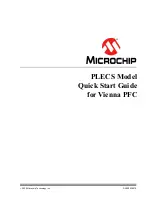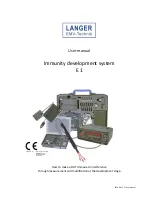
8. Understanding Midi timelags and how to minimize them
As you know, Midi is the 'Musical Instruments Digital Interface'. In this chapter we
want to share some interesting basics to help you getting the best out of the SSC. We
do not go into details like timing of software sequencers or latency in external
hardware samplers. We even leave the 'running mode' out of account.
If we talk about a 'Midi bus' in the following, it describes a separately adressable Midi
Out-jack of a device (sequencer, daw, Midi-interface) generating Midi data. One Midi
bus has 16 adressable Midi channels.
Limits of the Midibus
Midi is some decades old now but still has some cool features:
•
most reliable
•
compatibility of all devices over decades
•
hot plugable
•
cheap cables
But Midi also has 2 severe disadvantages:
1. the amount of data per second is very small
2. data is transmitted serial
We want to concentrate on these two issues and how to cope with them as good as
possible when working with the SSC.
1. small amount of data per second
Midi sends it's digital messages (which note to press how hard, what wheel was
turned how far, what synth parameter to change to which value ...) in data packets
called 'bytes' one after the other. Only ~3000 of these bytes can be sent per second
from a sender (e.g. sequencer) to a receiver (e.g. synth) until data jam begins to occur.
And most of the messages consume more than one byte.
Some numbers to give you a little insight: a single 'Note On' Event eats 3 bytes, a 4 Note
chord therefore demands 12 bytes, another 12 bytes when you release the keys (for terms
of simplification we leave 'running status' out of account here, it does't solve the main
problem either). A typical SysEx message of the SSC needs - depending on the edition -
about 10 Bytes. 10 Bytes on each single parameterchange! Turning a knob fully from left to
right on the SSC (which has a resolution of 127 steps) generates 127 * 10 = 1.270 Bytes. So
one full turn of a knob over one second eats nearly half of the data handling capacity of
one single Midibus.
Operation Manual 'Stereoping Synth Controller'
V1.2 - 12.2014
© Stereoping Germany, Hattingen 2014









































